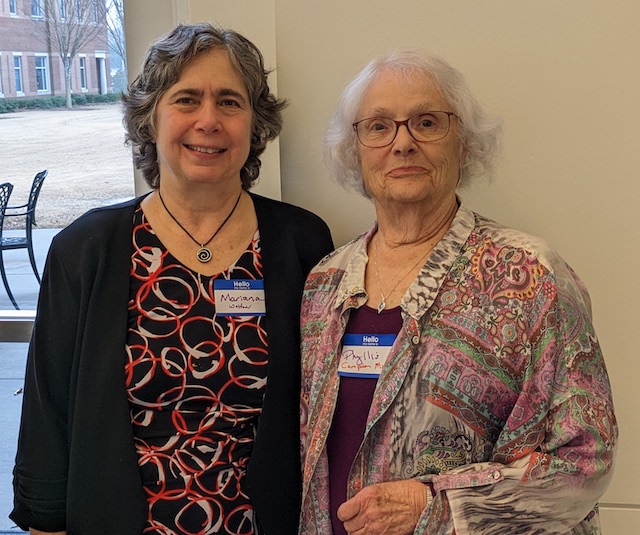Mariana Wolfner, PhD, Department of Molecular Biology and Genetics, Cornell University, Ithaca, New York presented the inaugural Phyllis C Leppert Lecture in Reproductive Biology at the February 25, 2023 annual meeting of the Triangle Consortium for Reproductive Biology, know as “TCRB”. Her topic was Molecular Changes in eggs, sperm and females that mediate fertility: lessons from the Drosophila model. The long-standing meeting brings together reproductive scientists from ten universities in North Carolina and Virginia. The meeting program traditionally features a plenary speaker who is a renown senior member of the field, several mid-career scientist from the southeast region of the United States. Young scientists present their work as either as posters or oral talks. This format provides undergraduate, graduate students and post-doctoral fellows an excellent opportunity to present their work in a formal meeting setting. It is a point of pride of the many scientists who are part of “TCRB” that a large majority of those who present at the “TCRB” develop research laboratories of their own in major research universities.

Dr. Franco Demayo, of the National Institute of Environmental Health Sciences, NIH, made these comments prior to the first recipient of the named Lectureship, Dr. Mariana Wolfner’s presentation. “Welcome to the inaugural Dr. Phyllis C. Leppert Lecture in Reproductive Biology at the Triangle Consortium for Reproductive Biology meeting. This Lecture serves as a tribute to the pioneering figure in the field of reproductive biology, Dr. Phyllis C. Leppert. Phyllis is a renowned Emerita Professor of Obstetrics and Gynecology at Duke University School of Medicine, and the President of the Phyllis and Mark Leppert Foundation for Fertility Research, which functions as the Campion Fund. Her distinguished career spanning several decades has made significant contributions to advancing our understanding of women’s health. In naming the lecture, we honor her immense contributions to the field of reproductive biology, her advocacy for reproductive biology research, and her support for the research community in the Research Triangle area. Through her work, Phyllis has been a role model for researchers worldwide and her dedication to the field of reproductive biology will continue to inspire future generations of scientists.”


